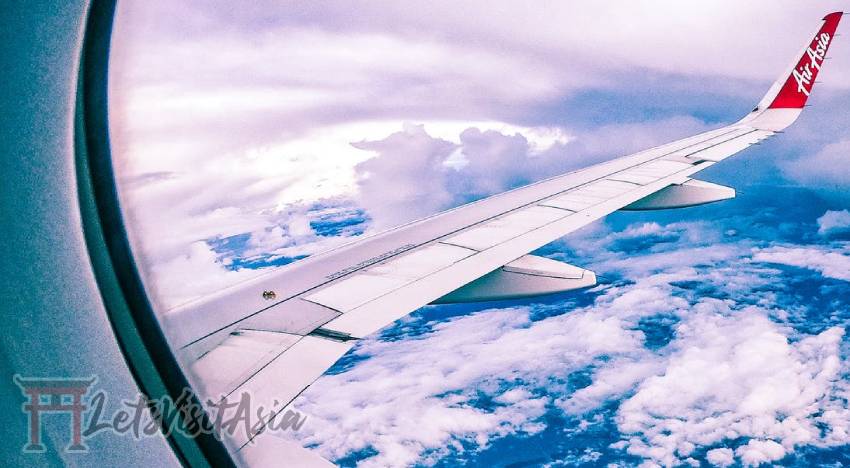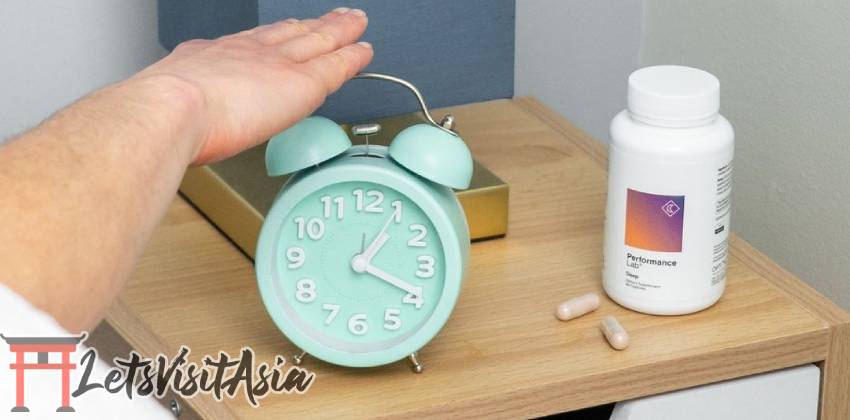Table of Contents
Everyone loves travelling. And with Asia as one of the top holiday destinations, jet lag is becoming more and more common.
Ultimately, more people are coming to experience the phenomenon of jet lag returning from Japan, for example, and are looking for ways around it.
Unfortunately there is no complete solution as yet. But we do have a number of hints and tips to lessen the intensity and difficulty – on how to get over jet lag from Asia.
Tip #1: Prepare Before The Flight From Asia
One of the main things to realise about jet lag is that it takes time and there is no way around this. Our bodies need time to adjust between different time zones and different sleeping schedules.
One of the best ways to help your body adjust to new time zones is to start adjusting your sleeping pattern a few days before returning from Asia.
While it may not be realistic to completely change your sleeping pattern while still in an Asian time zone, slow adjustments over a few days can make the arrival less of a shock.
It is also common to need a few days after arrival to fully adjust to a new time zone and consequently, adjust sleeping and eating schedules.
When arranging travel, it is good to take this into account and give yourself a few days off after arrival and before returning to work to allow yourself to fully adjust. To help you get over jet lag from Asia.
Tip #2: Upgrade Your Seat or Look for Stopovers From Asia
Often considered the worst part of travelling is the actual flight itself.
Navigating airports, cramped planes, and noise can be a stressful experience for anyone. This increase in stress also makes managing jet lag more difficult.
Some of the ways to get around this during the flight include possible upgrades.
While this is not an option for everyone, if you have the capability, upgrading from an economy seat can greatly improve the quality of your flight.
After all, its much easier to rest and relax in a seat with enough space to stretch your legs.
Another aspect which is easy to overlook is stopovers.
If your flight has a long stopover, it is good to research the airport you will be waiting at and check what facilities are available.
Many international airports have daybeds or similar facilities available for travellers who need to rest between flights (and help adjust your sleep pattern).
There are also often shower facilities which can help to refresh and relax before the next flight. Which would certainly go some way in helping you get over jet lag from Asia.
Tip #3: Look After Yourself Once You Get Back from Asia
During the first few days after arrival it is important to take care of your body in order to carefully readjust to the time zone.
Some of the best ways to help your body to do this include getting a lot of sunlight; while it can be hard to get outside and get moving while feeling drowsy and jet lagged, sunlight is useful in regulating our natural circadian rhythms.
Cold water showers can also help to refresh you and avoid drowsiness during the day.
Finally, keep up your hydration. While staying hydrated is important all the time, it is easy to become dehydrated while flying and dehydration can then worsen the effects of jet lag.
Making sure to stay hydrated during and after the flight can help your body in lessening these effects.
We also make sure to take a multivitamin supplement to ensure our bodies intake enough vitamins and minerals to function optimally. If you’re interested, learn more in our Performance Lab Multivitamin Review.
Tip #4: Try Melatonin and Magnesium
Melatonin is commonly used as a supplement for issues like insomnia.
Why? Because melatonin is naturally produced by our bodies in the absence of light to encourage your body to sleep, resulting in our natural night time sleep patterns.
After returning from a trip where your sleep patterns and circadian rhythms may be disrupted, taking a natural melatonin supplement can help you to sleep despite not being tired yet.
Melatonin has been shown by 9 out of 10 studies to be effective in reducing jet lag
It is usually taken as a low dosage supplement tablet around 30 minutes before sleeping. There are also quick-dissolve and gummy versions available.
We’ll put an emphasis on “low dosage” in the above paragraph; taking too much melatonin can result in morning drowsiness, which we all want to avoid.
In fact, we recommend looking for a natural sleep aid containing Montmorency Tart Cherry. This is a natural source of melatonin and we it’s better than consuming synthetic melatonin directly.
If you’re interested in learning about which natural sleep aid we use, read our Performance Lab Sleep Review.
Magnesium can also help to reduce the effects of jet lag
Magnesium is a mineral which makes up part of our daily diet. It is a calming mineral and can have a relaxing effect, making it useful for readjusting your sleep cycle.
However, not only is it calming, it has also been found to have a significant impact on natural circadian rhythms and sleep cycles. It’s for this reason that many take magnesium for jet lag.
The natural levels of magnesium the body’s cells rise and fall according to a natural sleep cycle. This means that optimising the level of magnesium in your body in accordance with your current time zone sleep schedule will help your body return to a natural cycle faster.
As a result, it’s a great idea to ensure that a natural sleep aid you choose also contains magnesium too.
Conclusion: How to Get Over Jet Lag from Asia
Jet lag is an unfortunate yet inevitable side effect of travelling around the world.
Experiencing new countries, new cultures and new places is amazing but it often ends on a negative with the aftereffect of jet lag.
The good news is that we have given you some of the best hints and tips to lessen the effects and help readjust your sleep pattern. To help you and inform you on how to get over jet lag from Asia.
Related Posts:





